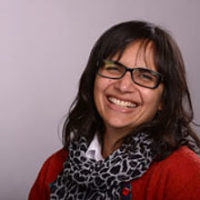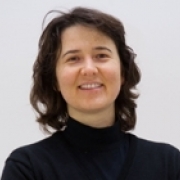Program (CET)
Day 1
10 Mar 2021
Day 2
11 Mar 2021
Day 3
15 Mar 2021
Day 4
17 Mar 2021
Day 5
18 Mar 2021
Day 6
24 Mar 2021
Day 7
25 Mar 2021
15:05 - 15:10
Welcome to Session I: Science and Application drivers for Cloud and Edge Computing
Scientific problems driving cloud and edge computing use a number of techniques such as filtering, combinatorial optimization, agent-based modelling, massive data analysis, embarassignly parallel simulations or machine learning. The sheer... Read More
15:10 - 15:30
Cloud and/or HPC in the 2020s: Risks, Opportunities and the SKA Project
The Square Kilometre Array (SKA) Project will shortly embark on the construction of the World’s largest radio astronomy observatory with locations on three continents. The SKA is, among other things,... Read More
15:30 - 15:50
Edge-to-End Workflows in Natural Hazards
Several natural disasters (e.g. earthquakes, volcanic eruptions, landslides or tsunamis) are hard to predict and pose a serious threat to human lives and property. Prompt reaction to these scenarios requires... Read More
15:50 -16:10
Artificial Intelligence – a Real Business Driver? What is Needed?
Artificial Intelligence (AI) is on everyone’s lips. Nearly every country has launched an AI action plan and undertaken activities for the adoption of AI, from research through to deployment. Almost... Read More
16:10 - 16:30
Sparse data and irregular problems in scientific applications
The dominant paradigm in scientific computation is built around “dense” data, which is assumed to be highly regular and well behaved. We explore the tensions with this ideal situation, by looking at several sparsity generating mechanisms,... Read More
16:30 - 16:50
Common Challenges Integrating HPC and Cloud Resources in HEP Computing
High energy physics is facing an unprecedented computing challenge in preparation for the next phase of the large hadron collider (LHC). The event complexity and data collecLon rate will both... Read More
16:50 - 17:10
Are Science Needs or Business Desires Driving the Growth of Cloud?
There is clear growth in the use of cloud computing for HPC and similar workloads. This talk will explore the reasons behind that growth, including science needs, business desires, and... Read More
17:10 - 17:30
Break
17:30 - 18:00
Networking Session
Participants in SOS24 highlighted several topics that can be clustered under the following categories: Technology – hardware, algorithms, etc. Resource management – workflows, facility issues Applications and data About networking... Read More
16:00 - 16:10
Welcome to Session II: Wrestling with Data
The amount of data generated by experiments, simulations, and sensors continues to explode. Processing has expanded beyond analysis and visualization to in situ feature detection, control and steering, compression/reduction, and... Read More
16:10 - 16:30
Services for On Demand Large Volume Experiment-Data Analysis Utilising a Hybrid of Local and Supercomputing and Cloud Technologies
The rise of new experimental data analysis techniques, together with the ever expanding set of computational accelerators, create challenges and opportunities for the facilities IT landscape. At PSI we host... Read More
16:30 - 16:50
Extreme Data Challenges Towards Exascale Weather Forecasting Systems
Numerical Weather Prediction (NWP) is a highly data intensive HPC application. ECMWF operational weather forecasts generate massive amounts of I/O in short bursts, accumulating to tens of TiB in hourly... Read More
16:50 - 17:10
Towards Effective Multi-Scale Coupled Urban Systems
The Computational Urban Sciences Group at ORNL, in partnership with NREL and several external stakeholders, have stood up a real-time digital twin focused on mobility for Chattanooga. The system has... Read More
17:10 - 17:30
Massive Storage with Tape-Based Technology for Cloud Environments
Tape technology is undergoing a renaissance. The latest tape recording-density demonstration at the Zurich Research Laboratory established the feasibility to reach 317 Gb/in2 in products towards the end of the... Read More
17:30 - 17:50
Networked HPC Storage from Cray to the Element
We discuss current HPC storage systems and the demands they place on the data network. We speculate on how these demands will change and what will be required of the... Read More
17:50 - 18:10
18:10 - 18:30
Break
18:30 - 19:00
Networking Session
Participants in SOS24 highlighted several topics that can be clustered under the following categories: Technology – hardware, algorithms, etc. Resource management – workflows, facility issues Applications and data About networking... Read More
15:00 - 15:10
Welcome to Session III: Exascale Data Movement Orchestration in Cloudy HPC Era
Data movement is of paramount importance on today’s and future HPC systems. While vendors have proposed to mitigate the data movement bottleneck with intermediate tiers of memory and storage, not... Read More
15:10 - 15:50
Orchestrating Data at System Level and Beyond
Data orchestration in the presence of more complex memory and storage hierarchies as well as distributed e-infrastructures is an ongoing challenge. In this talk we consider different strategies for addressing... Read More
15:30 - 15:50
Dynamic Workflows in the Exascale Era
Today, developers lack tools that enable the development of complex workflows involving HPC simulation and modelling with data analytics (DA) and machine learning (ML). The COMPSs programming framework from BSC... Read More
15:50 - 16:10
Orchestrating Data Movement and Computation for a Multiphysics Application at Scale
Data locality on new and future generation platforms is expected to be of paramount importance for good performance. However, many applications in astrophysics are by nature multiphysics, involving multiple solvers... Read More
16:10 - 16:30
Managing the High Cost of Data Movement Through Rich Metadata
When combining traditional HPC and cloud resources for a single workflow, different cost metrics come into play. In many cases, moving data into a cloud may be inexpensive or free,... Read More
16:30 - 16:50
Convergence Interconnect Technologies between HPC, Data Analytics, and Enterprise
The goal of the talk is to overview and highlight the convergence between the datacenter and HPC domains. I overview emerging trends in data center computing and discuss how those... Read More
16:50 - 17:10
17:10 - 17:30
Break
17:30 - 18:00
Networking Session
Participants in SOS24 highlighted several topics that can be clustered under the following categories: Technology – hardware, algorithms, etc. Resource management – workflows, facility issues Applications and data About networking... Read More
16:00 - 16:10
Welcome to Session IV: Toward Effective and Efficient Next-Generation HPC Software Ecosystems
New technical and organizational constructs promise to qualitatively change how the HPC community develops, delivers and deploys its software. Large-scale distributed collaboration enabled by platforms such as GitHub, GitLab and... Read More
16:10 - 16:30
Infrastructure and Support for Building and Using Next-Generation Software on HPC Systems
Next-generation software for HPC systems provides a path for improved and more widespread access to HPC resources for scientists and other potential users of such systems. It can also provide... Read More
16:30 - 16:50
h3-Open-BDEC: Innovative Software Platform for Scientific Computing in the Exascale Era
We propose an innovative method for computational science for sustainable promotion of scientific discovery by supercomputers in the Exascale Era by combining (Simulation + Data + Learning (S+D+L)). In May... Read More
16:50 - 17:10
E4S: Extreme-Scale Scientific Software Stack
The DOE Exascale Computing Project (ECP) Software Technology focus area is developing an HPC software ecosystem that will enable the efficient and performant execution of exascale applications. Through the Extreme-scale... Read More
17:10 - 17:30
Software Engineering Towards Exascale: Domain Specific Libraries, Communication Optimality, and Machine Learning
The value of HPC infrastructure is directly related to the productivity of the end-user. Key to this productivity is an ecosystem of user oriented software, namely scientific applications and workflows.... Read More
17:30 - 17:50
Next-Generation SW/HW Ecosystem: Network Offload
The ever-increasing computational capabilities and the applicability of HPC platforms to a growing number of problem domains comes the need to provide a wider range of system capabilities. This includes... Read More
17:50 - 18:10
18:10 - 18:30
Break
18:30 - 19:00
Networking Session
Participants in SOS24 highlighted several topics that can be clustered under the following categories: Technology – hardware, algorithms, etc. Resource management – workflows, facility issues Applications and data About networking... Read More
15:00 - 15:10
Welcome to Session V: HPC and/or Cloud for Data Driven Workflows
Presenters in this session will share their insights and experiences on services offered in the public cloud ecosystems, including HPC, for experimental and observational sciences communities, specifically with ever increasing... Read More
15:10 - 15:30
Going FAIR and Reproducible: a User-Centric Perspective on Data Driven Workflows
Practitioners are asked to embrace Open Science, follow the FAIR principles and make sure their work is reproducible. At the same time, the amount of data to be processed is... Read More
15:30 - 15:50
Containers and the Truth of HPC & Cloud System Software Convergence
As the code complexity of HPC applications expands, development teams continually rely on detailed software operation workflows to enable automation of building and testing their application. HPC application development can... Read More
15:50 - 16:10
The AiiDA Ecosystem for Materials Modelling – Managing Workflows on HPC Systems from the Cloud
AiiDA is a workflow manager for computational science with a strong focus on provenance, performance and extensibility [1,2]. When executing a workflow, AiiDA records the provenance − calculations performed, codes... Read More
16:10 - 16:30
HPC in the Cloud: Flexible Configurations; Faster Results
Migrate your High Performance Computing (HPC) workloads to AWS to accelerate your most complex engineering simulations and high-performance data analysis workloads. In this session, learn how new Amazon EC2 instances... Read More
16:30 - 16:50
Interoperability as the New Frontier for Storage Systems
As illustrated by IO500 benchmark in recent years HPC storage systems have considerably push the boundaries of performance. Not only from a quantitative standpoint with unprecedented throughput or capacity numbers... Read More
16:50 - 17:10
17:10 - 17:30
Break
17:30 - 18:00
Networking Session
Participants in SOS24 highlighted several topics that can be clustered under the following categories: Technology – hardware, algorithms, etc. Resource management – workflows, facility issues Applications and data About networking... Read More
16:00 -16:10
Welcome to Session VI: AI and Science: A Marriage Made in …
It is well recognized that AI has made significant strides in science discovery with examples such as data analysis with drug design, predictive modeling with earth systems, and intelligent control... Read More
16:10 - 16:30
Science and AI: A Young Couple with Much Potential, But Needs a Bit of Help
For Science and AI, like young couples everywhere, there is much potential, but this young couple needs a bit of help to grow and evolve. There potential for scientific advancement lies... Read More
16:30 - 16:50
AI and Science: Opportunities and Pitfalls
The role of data in modern science is exploding due to the proliferation of high-throughput instruments and distributed sensors, as well as massive amounts of simulated data. Machine learning methods... Read More
16:50 - 17:10
Artificial Intelligence and the Scientific Method: The New ‘Power Couple’
I will give a brief overview of the recent marriage of AI and the Scientific Method and offer some unsolicited advice to the partners, their in-laws and their extended families.... Read More
17:10 - 17:30
GeoAI for Social Science Applications: When Opposites Attract
Artificial Intelligence (AI) has made a significant impact on scientific discovery, facilitating innovation across a variety of sectors including healthcare, finance, and commerce. However, achieving important scientific breakthroughs necessitates strong... Read More
17:30 - 17:50
Recent Advances in Using mOS for ML Workloads
The mOS multi-kernel at Intel Corp. was initially designed to support traditional supercomputing workloads and provide them with the performance, deterministic behavior, and scalability of lightweight kernels but, in a... Read More
17:50 - 18:10
18:10 - 18:30
Break
18:30 - 19:00
Networking Session
Participants in SOS24 highlighted several topics that can be clustered under the following categories: Technology – hardware, algorithms, etc. Resource management – workflows, facility issues Applications and data About networking... Read More
15:00 - 15:10
Welcome to Session VII: Advances in non-von Neumann Architectures
With the end of Dennard Scaling and the apparent end of Moore’s Law, we are presented with an opportunity to think differently about computation. Many non-Von Neumann approaches, including neuromorphic,... Read More
15:10 - 15:30
The Future of Neuromorphic Computing for HPC and Beyond
A variety of new computing technologies are emerging as paths into the future of computing beyond exascale and beyond the end of Moore’s law. One of those technologies is neuromorphic... Read More
15:30 - 15:50
An HPC Systems Guy’s View of Quantum Computing
I will provide an introduction to the general concepts of quantum computation and a brief discussion of its strengths and weaknesses from a high-performance computing perspective. The talk is tailored... Read More
15:50 - 16:10
Digital Electronics at the Atomic Limit
Exponential increases in tooling costs for complementary metal-oxide-semiconductor (CMOS)/von Neumann architectures have motivated multi-scale codesign simulations to find new opportunities. To this end, we propose atomic precision advanced manufacturing (APAM)... Read More
16:10 - 16:30
There’s Life in the Old Dog Yet: How Advances in von Neumann Architectures Still Have a Lot to Give
With the slowing of Moore’s Law, the end of Dennard Scaling, and the apparent stalling of increases in instruction level parallelism in modern superscalar, out-of-order computer architectures, one would be... Read More
Results from ETH Sabbatical: Architecture of a Weather and Climate Accelerator
Ronald completed a one year sabbatical at CSCS Hönggerberg at the end of 2019. The objective was to develop a domain specific Accelerator architecture and implementation for weather and climate... Read More
16:50 - 17:10
17:40 - 18:00















































